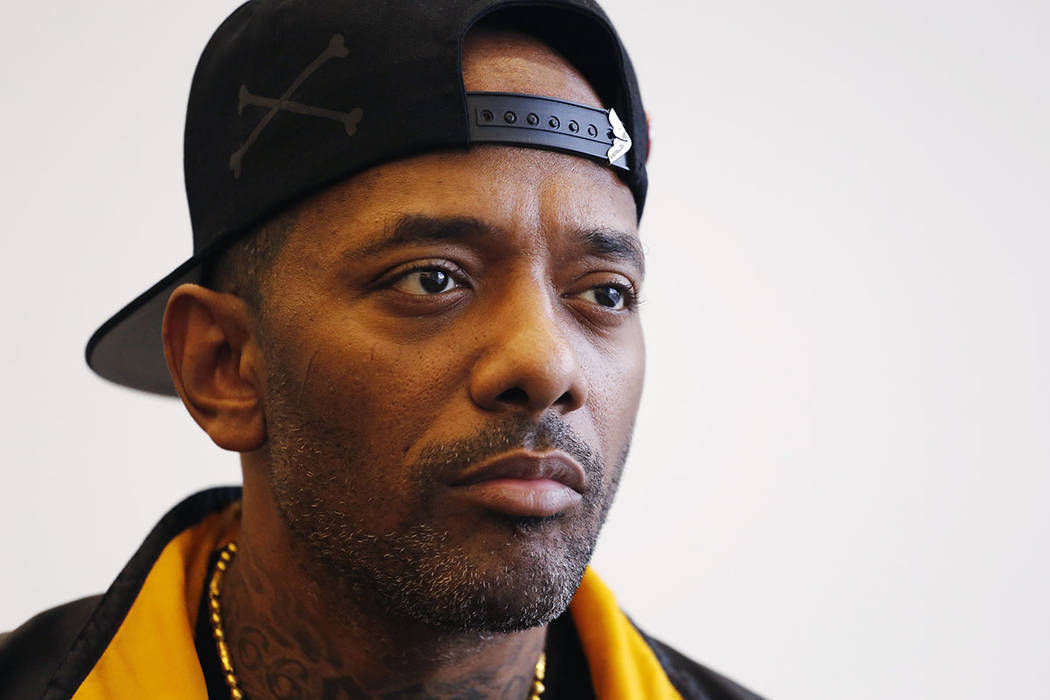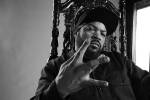Mobb Deep’s Prodigy dies after Las Vegas show
LOS ANGELES — Prodigy, the rapper best known for his work as half of long-running New York duo Mobb Deep, died in Las Vegas, after a hospitalization due to complications from sickle-cell anemia. He was 42.
The group’s publicist sent the following statement to XXL:
“It is with extreme sadness and disbelief that we confirm the death of our dear friend Albert Johnson, better known to millions of fans as Prodigy of legendary NY rap duo Mobb Deep. Prodigy was hospitalized a few days ago in Vegas after a Mobb Deep performance for complications caused by a sickle cell anemia crisis. As most of his fans know, Prodigy battled the disease since birth. The exact causes of death have yet to be determined. We would like to thank everyone for respecting the family’s privacy at this time.”
Along with his musical partner Havoc, Prodigy was a leading light of the hardcore hip-hop sound of the 1990s, and Mobb Deep’s 1995 album “The Infamous” — with its raw depictions of inner city life — was instrumental in returning New York City to the hip-hop vanguard after years of dominance from upstarts on the West Coast.
Prodigy, born Albert Johnson, was raised in a musical family — his grandfather was a jazz musician, his grandmother owned a dance studio, and his mother was for a time a member of the 1960s girl-group the Crystals. His early life was marked by a degree of privilege, yet his severe sickle-cell meant chronic pain and regular hospitalizations, and he was drawn to the rough street life of his Queensbridge Houses home even as he attended private schools. “Sometimes I’d wake up with severe pain in my stomach and back, a constant throbbing like my bones were broken,” he wrote in his 2012 memoir. “Pain and I got real close in those early years.”
He met Havoc, a fellow Queensbridge resident, at Manhattan’s Graphic Arts High School, and the two teenagers formed a duo, dubbed Poetical Prophets, whose demo tape was written up in influential rap bible the Source. Shortly after, they changed their name to Mobb Deep and released a debut album, “Juvenile Hell,” in 1993. The album, a rough prototype for the duo’s mixture of cold-eyed rapping and spare, dissonant beats, largely flew under the radar. But their much improved 1995 sophomore effort, “The Infamous,” brought the group to a much larger audience and featured “Shook Ones (Part II),” the track for which they are best known. The song’s influence would later spread to Oscar- and Tony-winning projects — it’s heard in the climactic scene of Eminem’s “8 Mile,” and Prodigy’s line “I’m only 19 but my mind is old” was memorably re-used by Lin-Manuel Miranda in “Hamilton.”
Featuring guest appearances from Queensbridge rapper Nas, the Wu-Tang Clan’s Raekwon and A Tribe Called Quest’s Q-Tip, “The Infamous” was bleak and uncompromising even by the standards of gangsta rap. Miles removed from the subversively jubilant mood of so many of their West Coast contemporaries, Mobb Deep’s vision of inner city violence was paranoid, cold, and deeply sad, as the titles of its standout tracks “Cradle to the Grave,” “Drink Away the Pain,” and “Survival of the Fittest” attest. The album reached No. 15 on the album charts, eventually going gold, and the group became key members of the resurgent New York hip-hop scene of the era alongside Nas and the Notorious B.I.G.
Mobb Deep’s third effort, 1996’s “Hell on Earth,” largely continued in the vein of “The Infamous,” and reached No. 6 on the album chart, while topping the hip-hop chart. At the time, the group also found itself caught up in the era’s lethal East Coast vs. West Coast rivalry, and were dissed by Tupac on several tracks — the most famous of which, “Hit ‘Em Up,” mocked Prodigy’s sickle-cell anemia. Mobb Deep responded with the equally brutal “Drop a Gem on ‘Em,” which was released shortly after Tupac’s murder.
In 1999, the group released its most successful album, “Murda Muzik,” which debuted at No. 3 on the Billboard 200 and quickly went platinum, buoyed by single “Quiet Storm.” Soon after, they would find themselves embroiled in yet another high-profile feud, this time with Jay-Z, who famously mocked Prodigy by projecting a childhood photo of him dancing as Michael Jackson at the annual New York Summer Jam concert in 2001. Prodigy responded with “Burn” the same year.
After the turn of the millennium, the group’s sound became more commercial and it released a series of indifferently received albums — including 2006’s “Blood Money,” their first as part of 50 Cent’s G-Unit clique — over the following years. Prodigy, meanwhile, had begun releasing his first solo material, starting with the No. 18-charting “H.N.I.C.”
Twice arrested for weapons and drug possession charges in the mid-2000s, Prodigy was sentenced to three and a half years in prison in late 2007, and ended up serving three. Shortly after his release, he published an unusually candid autobiography, “My Infamous Life.” In 2012, Mobb Deep split for several months after a dispute on Twitter, but publicly reunited the following year. Their eighth and most recent album, “The Infamous Mobb Deep,” was released in 2014.
The group continued to tour over the years and performed its last show in Las Vegas on Saturday as part of “The Art of Rap” tour with follow veteran rappers including Ghostface Killah, Onyx, KRS-One and Ice-T.





























